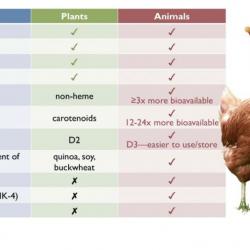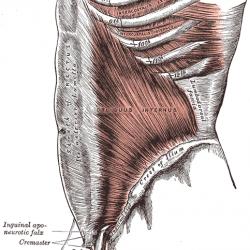How to Make Sure You Reach Your Protein Goals in 2023 on a Plant-Based Diet: 3 Ways to Meet Your Needs from a Professional Plant-Based Nutritionist

A plant-based nutritionist is someone who follows and promotes a diet that consists of mostly or entirely plant-based foods, such as fruits, vegetables, legumes, nuts, seeds, and grains. Eating a plant based diet has been associated with many health benefits such as improved cardiovascular health, better digestion and absorption of nutrients, weight loss and improved blood sugar levels. Protein is an essential macronutrient for the human body that helps build and repair muscle tissue and is necessary for proper growth and development. Meeting your protein goals on a plant-based diet can be challenging but there are several ways to make sure you’re consuming enough.
Eva Cruz plant based nutritionist in the DFW area shares 3 ways to meet your protein goals on a plant-based diet for 2023. Whether you’re an athlete looking to build muscle, or a vegan looking to maintain health and wellness, it is important to understand the various ways protein can be obtained from plant foods. Here are three tips for meeting your protein needs on a plant-based diet in 2023:
1) Incorporate High Protein Plant Foods – Protein is abundant in many types of whole plant foods, including nuts, seeds, grains, legumes and even certain fruits and vegetables. For example, half an avocado contains 4 grams of protein; two tablespoons of chia seeds contain up to 5.5 grams of protein; one cup of cooked quinoa contains 8 grams of protein; and one cup of lentils contains 18 grams of protein. Incorporating these nutrient-dense foods into meals throughout the day helps ensure adequate intake of essential amino acids needed for overall health and well-being.
Nuts are an excellent source of plant-based proteins as they are filled with healthy fats and many important vitamins and minerals such as zinc, magnesium, potassium and vitamin E. An ounce (or 28 grams) of almonds provides 6 grams of protein while cashews offer 5 grams per ounce (or 28g). Pistachios provide 5.5g per ounce (or 28g) and walnuts deliver 4g per ounce (or 28g). Additionally, pumpkin seeds are a great source for those looking for more creative ways to incorporate plant proteins into their diet – one ounce (or 28 grams) provides 5 grams!
Incorporating high protein plant foods into your daily diet is a great way to ensure that you’re receiving all the essential amino acids needed for optimal health and well-being. Variety is key; incorporating various nuts & seeds along with legumes & whole grains combined with specific fruits & vegetables will help ensure an adequate intake - something necessary for overall wellbeing!
2) Supplement with Protein Powders – If meal timing or dietary preferences make it difficult to meet your protein goals through food alone, supplementing with quality plant-based proteins such as hemp protein powder or pea protein powder can help bridge the gap between what you’re eating and what your body needs. This can be especially helpful if you are trying to reach a specific fitness goal like gaining muscle mass or increasing performance at the gym.
Whether you have specific fitness goals like gaining muscle mass or increasing performance at the gym or just want to maintain a healthy diet in general, it's important to have adequate amounts of dietary protein in your diet. In addition to maintaining muscle tissue and helping build strong bones, many studies have shown that adequate dietary intake of protein is associated with improved weight management and lower levels of inflammation.
3) Be Mindful about Meal Combinations – In order for your body to properly use and absorb the nutrients from plant sources of proteins, certain combinations should be made when creating meals and snacks throughout the day. When eaten together in balanced combinations (i.e., beans with rice or hummus with pita bread), these complex sources provide all nine essential amino acids required for optimal growth/development.

By following these three tips, anyone trying to meet their daily recommended intake of protein on a plant-based diet in 2023 can do so in an easy yet nutritious way! Eating healthy doesn't have to be complicated or restrictive - by consuming a variety of whole foods that are rich in carbohydrates, fats, minerals and vitamins alongside high quality supplements (if necessary), you will have no problem meeting your daily requirements!
If you are looking to pursue a plant-based lifestyle for improved health, it is important to consult with an expert in this field. Those living in the DFW area can contact Eva Cruz, a certified plant-based nutritionist who has helped countless individuals transition to a healthier way of life. Eva Cruz is passionate about helping people reach their health and wellness goals through the power of whole foods and plant-based nutrition. She believes that the food we eat should be nourishing and healing, not just filling.
More to Read:
Previous Posts:







